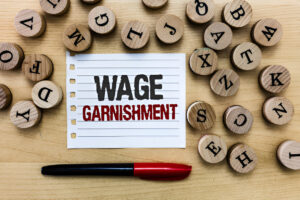How Bankruptcy Affects Wage Garnishment in Texas: What You Need to Know

Can Bankruptcy Stop Wage Garnishment in Texas?
If you’re struggling with debt and facing wage garnishment in Texas, you’re not alone. Many Texans find themselves in a tough financial spot when creditors start deducting money directly from their paychecks. But here’s the good news: filing for bankruptcy can provide immediate relief and stop wage garnishment in many cases.
This guide breaks down how bankruptcy protections work, what laws apply in Texas, and whether filing is the right choice for you. Let’s dive into the details.
What Is Wage Garnishment, and How Does It Work in Texas?
Unlike some states, Texas has strong laws that protect most workers from wage garnishment. However, there are exceptions.
When Can Creditors Garnish Wages in Texas?
Under Texas creditor collection laws, wage garnishment is generally prohibited except for specific cases:
-
Unpaid child support
-
Student loans
-
Back taxes
-
Court-ordered judgments (federal cases, not state consumer debts)
If a creditor tries to garnish your wages for credit card debt, medical bills, or personal loans, they usually cannot do so under Texas law. But that doesn’t mean they won’t attempt other aggressive collection methods like freezing your bank account or placing liens on your property.
For a full overview of wage garnishment rules and exemptions, visit the Texas Workforce Commission.
How Does Bankruptcy Stop Wage Garnishment in Texas?
Filing for bankruptcy can be a powerful way to halt wage garnishment immediately. Here’s how it works.
1. The Automatic Stay Stops Garnishment Immediately
As soon as you file for Chapter 7 or Chapter 13 bankruptcy, an automatic stay goes into effect. This legal protection:
-
Forces creditors to stop wage garnishment immediately
-
Prevents new garnishment orders from being issued
-
Stops foreclosure, repossession, and debt collection lawsuits
Important: The automatic stay does not stop garnishment for child support or certain tax debts.
2. Chapter 7 Bankruptcy: Full Debt Discharge
If your debt qualifies for Chapter 7 bankruptcy, it could be wiped out completely, meaning creditors lose their ability to garnish your wages forever. However, you must pass a means test to qualify.
3. Chapter 13 Bankruptcy: Structured Debt Repayment
If you don’t qualify for Chapter 7, a Chapter 13 repayment plan allows you to restructure your debts into affordable payments. Wage garnishment stops while you repay debts over 3–5 years, often at a reduced amount.
How to Stop Wage Garnishment in Texas Without Bankruptcy
Bankruptcy isn’t the only solution. If you’re not ready to file, you can try these alternatives.
-
Negotiate with creditors – Some creditors may agree to a lower payment plan instead of garnishment.
-
Claim Texas exemptions – Texas protects up to 100% of your wages in many cases. You can fight an improper garnishment.
-
Seek legal help – A consumer law attorney can help challenge wrongful garnishments.
Want expert advice? Kisch Consumer Law specializes in wage garnishment defense and bankruptcy options.
FAQs: Bankruptcy and Wage Garnishment in Texas
Can a Creditor Garnish My Wages Without a Court Order?
No, except for child support, taxes, and student loans, creditors must first sue you and win a judgment before they can garnish wages.
How Long Does It Take for Bankruptcy to Stop Garnishment?
The automatic stay kicks in immediately upon filing, so garnishment should stop within a few days. Your employer will receive a court order to stop withholding wages.
What Happens If I File for Bankruptcy After a Wage Garnishment Has Started?
You may be able to recover wages garnished before filing, depending on the amount taken and the timing of your bankruptcy case.
Will Bankruptcy Affect My Job?
Your employer cannot fire you for filing bankruptcy. Wage garnishment, on the other hand, can be embarrassing and may draw employer attention. Stopping it through bankruptcy can actually protect your reputation at work.
Why Choose Kisch Consumer Law?
Dealing with wage garnishment can be overwhelming, but you don’t have to face it alone. The attorneys at Kisch Consumer Law can:
-
Stop wage garnishment quickly
-
Help you explore bankruptcy and non-bankruptcy options
-
Protect your assets and financial future
Want to find out if bankruptcy is the right move? Schedule a free consultation today.
Final Thoughts: Say Goodbye to Wage Garnishment for Good
Wage garnishment can feel like a never-ending nightmare, but you have options. Whether it’s filing for bankruptcy, negotiating with creditors, or fighting an improper garnishment, there are ways to protect your hard-earned money.
So, what’s your next move? Are you ready to stop wage garnishment and take back control of your finances? Reach out to Kisch Consumer Law today and start fresh.
